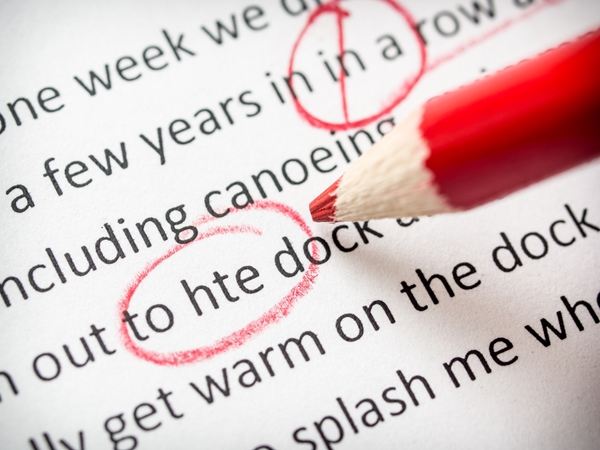Composing a letter in word processing programs has created a bad habit in people. It’s common to read through a letter and spot several spelling and grammar mistakes. People have become so used to auto correct and error notifications that they don’t slow down to process when they’re writing. This not only makes you look bad via electronic communication but through written correspondence, as well.
Avoid mistakes at all costs
Writing blunders never go over well. The recipient won’t appreciate them, and it can be quite embarrassing when you realize you’ve made a mistake. Here are a few reasons you should always check your writing for errors, even if you’re just writing to a friend:
- Interrupts flow: Whether you’re writing to a friend or a professional contact, mistakes stick out like a sore thumb. It’s jarring to the reader and will take him or her out of the story you were trying to create.
- Bad impression: Noticeable grammar and spelling errors also give your reader the impression that you weren’t taking your time. It makes your letter seem sloppy and less sincere than if you had slowed down to check your writing.
- Looks unprofessional: In business circumstances, an incorrect spelling could be what stands between you and a job interview. Employers won’t want to hire someone who has poor written communication skills, so make sure you proofread any cover letter or resume you send out.
Tips for preventing writing errors
Grammatical and spelling errors do not have to be an expected blunder in your writing. You can take several preventative measures to keep you writing clean and mistake-free:
- Slow down: Feeling rushed and impatient is bound to lead to a few misspellings and grammar blunders. Don’t try to squeeze your letter writing in between errands or work breaks. Instead, designate a certain amount of time in your day to composing your letters. This will let you slow down and take your time on the task. Try ending your day with a little letter writing. It’s an excellent way to unwind after a busy work shift, and insert a little creativity into your routine.
- Reread: After you’re done composing your letter, set it aside for a couple of hours. Before you pack it into an envelope, take a few minutes to reread your message. Keep a bottle of whiteout on hand in case you spot a mistake. If you don’t like the blemishes whiteout tends to leave behind, try writing your note on a plain sheet of paper and then transferring it to your personalized stationery later. This way, you can make any corrections you need to on the scrap paper and keep your message neat and error-free in the final draft.
- Get a proofreader: When it comes to professional messages, always have someone read the message for you. An extra set of eyes is always useful, and more often than not, a friend will catch mistakes that you repeatedly missed. This is often because you’re so used to the message that you start skimming over errors. A proofreader will pick up on those mistakes a lot faster and will also be able to tell you if certain phrases sound awkward or choppy. This is invaluable information, especially when applying for a job.
So, next time you start to compose a letter, whether it’s to a friend or colleague, remember to double check your writing. Communication is key, no matter the circumstance, so show friends and employers that you have a strong command of the written word by always sending out crisp, clean copy.

